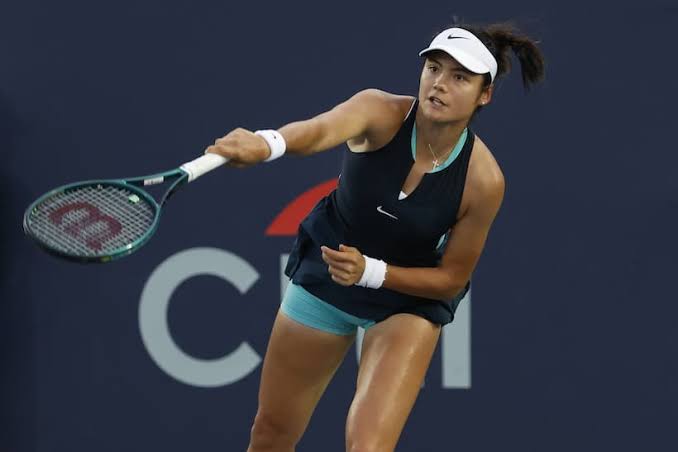
If she can restore her mental composure and resilience, there’s no telling how far she can go…

Emma Raducanu’s career has been a
whirlwind of highs and lows since her
stunning US Open victory in 2021. Once
hailed as tennis’s next big star, her recent
struggles have left fans and pundits alike
questioning the cause of her sudden
slump in form. One voice that has
weighed in on the matter is none other
than Serena Williams’ former coach,
Patrick Mouratoglou, who has suggested
that Raducanu’s issues might go beyond
physical performance. He hints that the
21-year-old’s challenges may stem from
deeper mental factors that are hindering
her potential.
Since her breakthrough triumph in New
York, Raducanu has found it difficult to
maintain her level of consistency. Early
expectations placed immense pressure
on the young Brit, with many
anticipating that her success was just the
beginning of an illustrious career.
However, the reality has been far more
complex, with multiple injuries and
frequent coaching changes leading to a
sense of instability in her professional
life.
Mouratoglou, who has worked with the
world’s top players, including Serena
Williams, is no stranger to
understanding the psychological battles
that elite athletes face. In recent
comments, he suggested that Raducanu’s
difficulties could be rooted in the mental
aspect of the game. He noted that after
such a meteoric rise to fame, the weight
of expectations could be overwhelming,
leading to an internal struggle that
manifests itself on the court.
“Many players struggle after a
breakthrough moment because the
pressure mounts, and it’s difficult to
replicate that success,” Mouratoglou
explained. “You’re no longer playing for
fun, you’re playing for validation. And
that’s a huge mental burden to carry.”
Raducanu’s case is particularly striking
because of the way she achieved success.
Unlike many players who build their
careers slowly, Raducanu’s rise to
stardom came in a dramatic fashion,
seemingly out of nowhere. Her historic
run at the US Open, where she went from
qualifying to winning the title without
dropping a set, captured the attention of
the tennis world. It was the type of
performance that would be hard to
follow for any player, let alone someone
as young as Raducanu.
However, following that victory,
Raducanu has struggled to replicate the
same level of success. Her performances
have been inconsistent, and her results
have been overshadowed by injuries and
the lack of a stable coaching team. She
has worked with several coaches in a
short period, which can disrupt a
player’s rhythm and confidence.
For an athlete like Raducanu, who rose to
prominence at such a young age, the
external pressures have been immense.
Beyond the expectations of fans, there
are sponsorship deals, media attention,
and the constant scrutiny that comes
with being a household name. While
many athletes thrive in such an
environment, others, particularly
younger players, can find it
overwhelming. Mouratoglou’s analysis of
Raducanu’s situation suggests that she
might be experiencing exactly this kind
of mental strain.
The mental game in tennis is arguably as
important as the physical one, and top
players like Serena Williams and Novak
Djokovic have long emphasized the need
for mental fortitude in the sport. Without
the ability to handle pressure, even the
most talented players can struggle. For
Raducanu, the challenge now is not just
about finding the right technique or the
right physical condition, but learning
how to cope with the mental pressures
that come with being a top player.
While Raducanu’s slump may not solely
be about mental issues, there is little
doubt that her ability to overcome these
psychological barriers will be crucial to
her future success. Many young players
go through periods of uncertainty, but
those who manage to push through and
develop mental resilience often emerge
stronger.
Mouratoglou’s perspective should not be
seen as an indictment of Raducanu’s
talent or work ethic. Rather, it is a
reminder of the complex nature of
professional tennis, where mental and
emotional challenges can play just as
significant a role in success as physical
preparation. For Raducanu, the path
forward may involve not just technical
adjustments, but a renewed focus on
building mental toughness and learning
how to handle the pressures of being at
the top of the sport.
As Raducanu continues to navigate this
challenging phase, it will be interesting
to see how she responds to both the
external and internal pressures. If she
can find a way to regain her mental
balance and inner strength, her potential
remains limitless.







